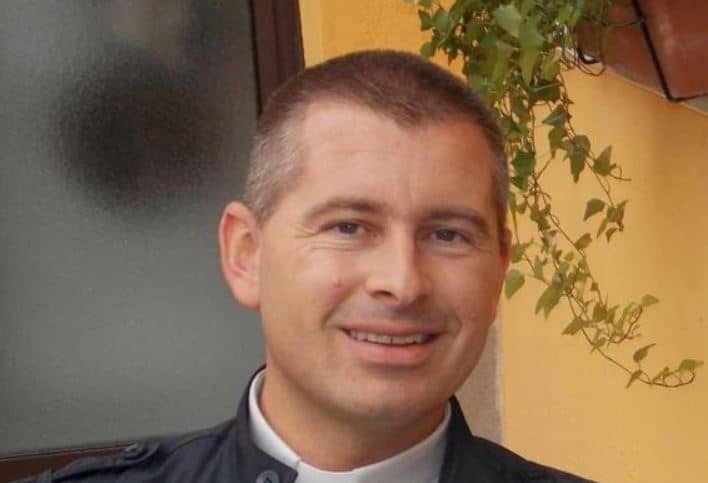ROME – As the world is preoccupied with this week’s U.S. presidential election, another sovereign entity, the Order of Malta, will be casting their own votes Nov. 7-8, though mail-in ballots are not allowed.
The Order of Malta’s Council Complete of State is convening in Rome at the Magistral Villa to elect a new leader after the passing of their Grand Master, Fra’ Giacomo Dalla Torre, in April.
On Nov. 8, the Knights will vote on a selection of candidates to either elect a new Grand Master to lead the order, or a Lieutenant who will hold office for a year, until a Grand Master is elected.
Physical presence is required in order to cast a vote, despite the continued rise in coronavirus cases in Italy and throughout Europe. However, even someone who is not present is able to be elected.
In addition to happening during a pandemic, the election also takes place amid several notable shake-ups, including an ongoing reform of the order’s constitutions and the recent appointment of a new papal delegate after the former representative was forced to resign in scandal.
In late 2016, the Order of Malta entered into a major conflict with the Vatican which resulted in weeks of a back-and-forth power-struggle after the Grand Chancellor, Albrecht von Boeselager, was expelled by the order’s leadership, only to be reinstated by Pope Francis himself.
Francis then launched an investigation into Boeselager’s ousting and, when former Grand Master Fra’ Matthew Festing refused to cooperate, he asked Festing to resign and ordered the group to undergo an in-depth internal reform, modifying their constitutions and focusing on how to gain new, younger members.
At the time, he named Italian Cardinal Angelo Becciu – who was serving as sostituto in the Secretariat of State, analogous to the pope’s chief of staff – as his special delegate overseeing the reform.
On Sept. 24 the Vatican announced Becciu’s resignation from his post as head of the Vatican’s Congregation for the Causes of Saints and from his rights as a cardinal. Though no formal reason was given for his departure, Becciu held a private press conference the next day saying the pope asked him to resign over allegations of embezzlement.
For weeks the Order of Malta was in limbo, awaiting a new delegate to look over their proposed constitutional reforms. In an interview with Crux in October, Boeselager said the Order was close to completing their reform and had presented proposed changes to Becciu and were awaiting a response when his resignation was announced.
On Nov. 1, days after announcing that Italian Archbishop Silvano Tomasi would be made a cardinal later this month, Pope Francis said he was naming Tomasi – known for his involved, hands-on approach – as the new delegate to the Order of Malta.
A longtime Vatican diplomat, Tomasi previously served as the Holy See’s permanent observer to the United Nations in Geneva, and is widely respected among the Vatican’s diplomatic corps.
Given that dalla Torre – who was named interim leader for the Order after Festing resigned, had only served as Grand Master for two years, having been formally elected in 2018 – whoever fills that role next will send a clear message about the tone the Order wants to set and the direction they intend to go as their reform concludes and they focus on moving forward.
According to Article 13 of the Order of Malta’s constitution, the Grand Master is a life-long position, and whoever fills that role has to have spent at least 10 years in solemn vows if they are under 50. For those who are older but who have been members of the Order for 10 years or more, only three years of solemn vows are enough.
There are 56 electors who will participate in the Council Complete of State, including two women who lead associations in Europe and South America.
Currently there are 11 eligible candidates, including rumored front-runners Carlo d’Ippolito di Sant’Ippolito, Ludwig Hofmann von Rumerstein, and Pierre de Bizemont, all of whom are former Grand Commanders in the Order. Also considered a likely candidate is Marco Luzzago, 70, who is the youngest of the eligible candidates.
Ever since their troubles with the Vatican four years ago, the Order has placed a strong emphasis on their humanitarian projects, specifically those related to migrants and which offer health and sanitary support to countries and institutions amid the coronavirus pandemic.
These will likely continue to be priority areas moving forward, no matter who the new leader is.
Follow Elise Ann Allen on Twitter: @eliseannallen
















